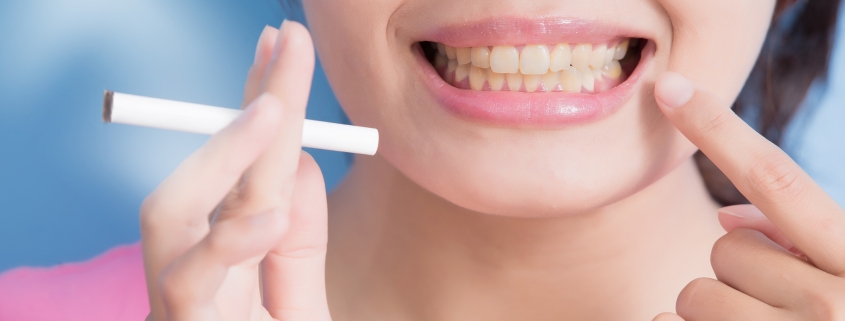The Impact of Smoking on Oral Health
Smoking is a well-known health hazard that affects nearly every organ in the body, including the mouth. The detrimental effects of smoking on oral health are profound and far-reaching, contributing to a range of dental and periodontal issues. This article delves into the various ways smoking impacts oral health, the mechanisms behind these effects, and the importance of quitting smoking for maintaining a healthy mouth.
The Detrimental Effects of Smoking on Oral Health
1. Tooth Discoloration
One of the most immediate and visible effects of smoking is tooth discoloration. The nicotine and tar in tobacco products stain the teeth, leading to yellow or brownish discolorations. These stains can be difficult to remove with regular brushing and often require professional dental cleaning or whitening treatments.
2. Gum Disease
Gum disease, or periodontal disease, is significantly more prevalent among smokers. The harmful chemicals in tobacco smoke cause several issues:
Plaque and Tartar Buildup: Smoking increases the production of plaque and makes it more difficult to remove, leading to tartar buildup.
Reduced Blood Flow: Nicotine causes blood vessels to constrict, reducing blood flow to the gums. This impairs the delivery of essential nutrients and oxygen, weakening the gums.
Impaired Immune Response: Smoking suppresses the immune system, making it harder for the body to fight off infections, including those affecting the gums.
These factors contribute to the development of gingivitis (inflammation of the gums) and can progress to periodontitis, a severe form of gum disease that can result in tooth loss.
3. Delayed Healing
Smoking impairs the body’s ability to heal. This is particularly problematic for oral health in several ways:
Post-Surgical Complications: Smokers are more likely to experience complications and delayed healing following dental surgeries, such as tooth extractions or periodontal surgery.
Wound Healing: Any oral wounds or ulcers take longer to heal in smokers, increasing the risk of infection and other complications.
4. Tooth Loss
Due to the cumulative effects of gum disease, smokers are at a higher risk of tooth loss. The reduced blood flow, increased plaque buildup, and impaired immune response all contribute to the weakening of the supporting structures of the teeth, ultimately leading to tooth loss if left untreated.
5. Oral Cancer
Smoking is a major risk factor for oral cancer. Tobacco smoke contains numerous carcinogens that can lead to the development of cancerous cells in the mouth, lips, tongue, throat, and other areas of the oral cavity. The risk of developing oral cancer is significantly higher in smokers compared to non-smokers.
6. Bad Breath and Altered Taste
Halitosis: Smoking causes persistent bad breath, known as halitosis, due to the presence of tobacco particles in the mouth and the drying effects of smoke on oral tissues.
Altered Taste: Smoking dulls the taste buds, reducing the ability to taste foods and beverages fully. This can diminish the overall enjoyment of eating.
Mechanisms Behind Smoking’s Impact on Oral Health
Understanding the mechanisms behind the negative effects of smoking on oral health involves examining the chemical components of tobacco smoke and their interactions with oral tissues.
Chemical Components of Tobacco Smoke
Tobacco smoke contains over 7,000 chemicals, many of which are toxic and carcinogenic. Key harmful components include:
Nicotine: Causes vasoconstriction and reduces blood flow to the gums.
Tar: Contains numerous carcinogens that stain teeth and contribute to cancer development.
Carbon Monoxide: Reduces oxygen levels in the blood, impairing tissue repair and immune response.
Interaction with Oral Tissues
Immune Suppression: Smoking suppresses the activity of neutrophils and other immune cells, reducing the body’s ability to fight infections.
Inflammatory Response: Chronic exposure to tobacco smoke leads to persistent inflammation in the oral tissues, contributing to gum disease and other oral health issues.
Cellular Damage: Carcinogens in tobacco smoke cause mutations and damage to the DNA of oral cells, increasing the risk of cancer.
Importance of Quitting Smoking for Oral Health
Quitting smoking is crucial for improving oral health and reducing the risk of severe complications. The benefits of cessation include:
Improved Gum Health
Within weeks of quitting, blood flow to the gums improves, enhancing nutrient and oxygen delivery and supporting the healing process. Over time, the risk of developing gum disease decreases significantly.
Reduced Risk of Oral Cancer
Quitting smoking reduces the exposure to carcinogens, lowering the risk of oral cancer. The longer one remains smoke-free, the greater the reduction in cancer risk.
Enhanced Healing and Reduced Complications
Former smokers experience better healing after dental procedures and a lower risk of post-surgical complications. This contributes to overall better outcomes in dental treatments.
Fresher Breath and Improved Taste
Cessation of smoking leads to fresher breath and the gradual return of the full sense of taste, enhancing the enjoyment of foods and beverages.
Lowered Risk of Tooth Loss
By reducing the risk factors associated with gum disease, quitting smoking helps preserve the supporting structures of the teeth, lowering the likelihood of tooth loss.
Conclusion
The impact of smoking on oral health is profound and multifaceted, affecting everything from tooth color to the risk of life-threatening diseases like oral cancer. Understanding these effects underscores the importance of quitting smoking not only for overall health but specifically for maintaining a healthy mouth. For smokers, seeking support to quit can lead to significant improvements in oral health, contributing to better quality of life and overall well-being. Regular dental check-ups, combined with good oral hygiene practices, are essential in mitigating the adverse effects of smoking on oral health and ensuring a healthier future.

